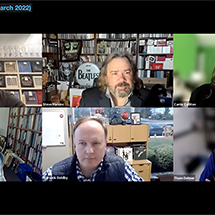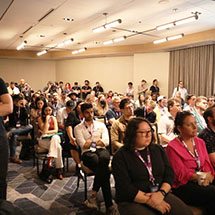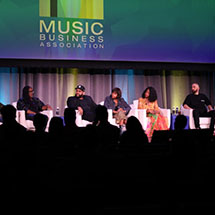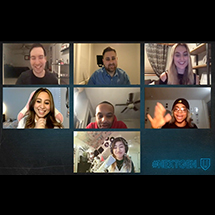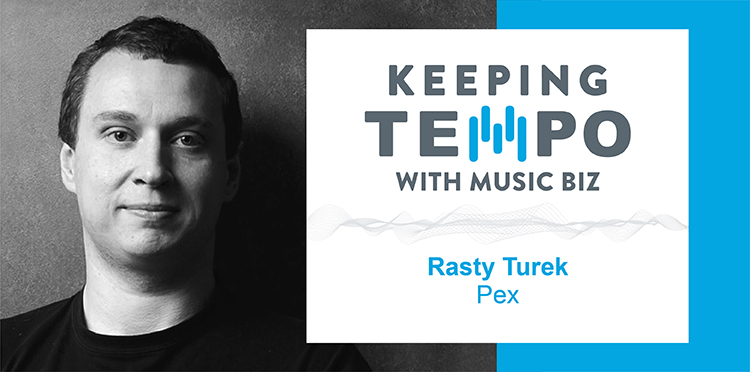
[Keeping Tempo With Music Biz] — Understanding the Implications of Article 17 Copyright Reform: A Conversation with Rasty Turek, CEO of Pex

The passage of the EU Copyright Directive, including Article 17, brings sweeping digital copyright reform that stands to benefit rightsholders of all sizes. While it should improve how copyright holders can protect their works in the digital landscape, it is still unclear how the Directive will be implemented by each member state, what exactly digital platforms will be liable for, and what impacts it may have for users. To help us better understand how Article 17 will impact the music industry, copyright holders, and digital platforms, Music Biz is partnering with Pex to deliver a series of educational events that explain the changes Article 17 is bringing and highlight its benefits. We recently sat down for a broad overview on Article 17 with Rasty Turek, Founder and CEO of Pex, to discuss the ins and outs of the legislation ahead of these events.
Music Biz: Given that the majority of our readership is U.S.-based, could you give us insight on how Article 17 came to be and the road to it being passed?
Rasty Turek: Europe has been taking major legal action against social media platforms for years, all of which has been aimed at holding them more accountable for their data and their content while better protecting users. The Copyright Directive is similar and aims to hold platforms accountable for the copyright infringement that exists on their networks. Article 17 is the part of the Directive that requires platforms to bear the burden of finding, licensing, and removing copyright infringing content.
Music Biz: What does the timeline for its implementation look like now that Article 17 has passed?
RT: The Directive was passed in April 2019 and has to be implemented by all EU member states by June 7, 2021. In the EU, once a Directive is passed, there’s a formal process that follows. There are 27 member states and each has a different procedure.
Generally speaking, the first step is for the state department (ministry) to hold a series of talks with stakeholders, similar to the stakeholder dialogue on the EU level. Based on the outcome of the dialogue, legislators prepare one or more drafts of the legislation, on which they consult with the stakeholders. Then typically the second or third draft is sent for comments from other departments. From here, it differs on the political system in each country. Typically, comments may or may not be incorporated, and then a new draft goes to the government, which needs to adopt it. The government sends the law into parliament, which needs to vote on it. In some countries, parliament can further amend the law before the vote. Once adopted by the parliament, it may need to go to the senate and/or president (for further vote and/or signature). This step is highly country-specific.
Right now, several states have released drafts and they’ve undergone review. So far, no member state has passed a draft into law. While the deadline is June 2021, there’s nothing stopping any state from passing a law before then.
Music Biz: What groups of end-users will be impacted most by the changes this legislation will implement?
RT: Ultimately, everyone will be impacted in some way or the other by this legislation. Content creators, artists, labels, publishers, rights collections groups, law enforcement, and everyone who uses the Internet. Anyone who owns a copyright and wants to protect it is heavily impacted in a beneficial way. Article 17 gives rightsholders better control of their content, especially on UGC platforms.
Pex has been identifying uses of copyrighted material on UGC platforms for the past seven years and has found billions of uses, many of which were able to be monetized. Going forward, these uses have to be identified and licensed by platforms before they can be published, removing a huge burden from rightsholders and giving them endless new opportunities to benefit from the use of their content online.
Music Biz: In addition to copyright holders, Article 17 is also set to have an impact on digital platforms. What type of platforms are affected and what challenges are they facing?
RT: Any platform that meets the definition put forth in Article 17, needs to be compliant in order to operate legally in the EU. Article 17 mandates several challenging requirements for platforms:
- Must make best efforts to obtain a license for copyrighted material in user uploads before it is published
- Must make best efforts to not display any copyrighted content which has been registered with the platform by rightsholders
- Must act expeditiously to take down any copyrighted content on receipt of valid notice from the rights-holder
- Must make best efforts to prevent the reupload of taken-down content
Of course, it’s important to note that right now EU member states are still drafting and deliberating their implementations of the Directive, which will vary country by country.
Millions of pieces of content are uploaded to UGC platforms every day, and now platforms will need technology to find copyrighted content in every one of those uploads and an efficient way to license the content. The biggest challenge will be processing millions of uploads quickly and accurately so that the user experience is left mostly intact.
Music Biz: Article 17 has been referred to as “the meme killer;” i.e. that it would prevent average consumers from making content on their own to post on social media. Is there any truth to this, or are there protections for those who are making content just for fun and not trying to profit off copyrighted material?
RT: This is an argument made by those who fear over-regulation and using technology for content moderation. Some people are worried that algorithms used to identify copyright will be used to moderate all content and stifle free speech. The truth is, there are protections for users in the Directive that must also be implemented by all member states. The Directive exempts the uses of copyrighted material for quotation, criticism, and review, such as movie reviews and certain educational content; and for caricature, parody and pastiche, which may include memes and satire.
The Directive also mandates that there must be a complaint and redress mechanism for users, so in the event a user feels their content was erroneously blocked or removed, they can dispute the action.
Music Biz: YouTube built its Content ID in an effort to compensate copyright holders and flag content with misused content. Does Content ID offer a solution to problems that arise due to Article 17’s implementation, and are other platforms now going to do the same?
RT: Content ID was a good idea when it was developed and implemented years ago, but today it’s not enough to make platforms compliant with every requirement of Article 17. Content ID currently takes a long time to identify already published content that uses copyrighted material. It allows rightsholders with certain credentials to monetize some content and earn a portion of ad revenue, but it isn’t publicly available to everyone, nor does it allow content to be licensed. It also doesn’t have any way for YouTube to prevent taken down content from being reuploaded. Currently, rightsholders have to keep finding reuploaded content and sending new take down requests. It’s estimated only a little more than 9,000 rightsholders have access to manual claiming with Content ID. Other platforms will need to implement or build a system that is much more advanced.
Music Biz: While this is legislation set to dictate copyright law in the EU, what is the perceived impact this is set to have internationally, particularly in the U.S.?
RT: The immediate impact is that U.S. platforms with operations in the EU will have to comply with these new laws. We’re already seeing an appetite in Congress to revisit the Digital Millennium Copyright Act (DMCA) as well as §230 of the Communications Decency Act (CDA). We believe that it won’t be long until the U.S. proposes laws that change how platforms treat copyrighted content on their networks.
The way the current DMCA is structured does raise some interesting questions when it comes to how platforms will comply with the EU’s Directive. Under the current DMCA, platforms are required to take down infringing content when they have knowledge of its existence. Because of the compliance requirements of the Directive, one could argue that platforms would need to have knowledge of this content, therefore also making them liable under the DMCA. This is a question that will best be settled by legal experts and courts.
Music Biz: To that point, does Article 17 serve as a starting point for changes to copyright law in other countries?
RT: Article 17 sets a precedent, and the way that each member state chooses to implement the Directive will set additional precedents. Not every state is implementing the same — some are more or less strict than others — and each law will serve as an example of how to make these changes.
As time passes and we see the impacts, other countries will learn what to and not to do in their own legislation.
Internationally, many large companies that rely on the EU as a major market may decide to implement changes on a global scale.
Music Biz: We’re excited to partner with Pex this and next year for a series of educational sessions around the impact and benefits of Article 17. Can you share a general overview of the conversations that will take place?
RT: We want to educate rightsholders and platforms about Article 17 and the technology available to ensure compliance. We’re going to cover the impacts and opportunities of Article 17 for copyright holders, especially for music rightsholders who will be able to increase their royalty revenues. We’re also going to discuss the challenges platforms are facing, what types of platforms are liable, and how they can reduce their legal risk before June.
Music Biz: With the number of industry subsets that are entwined with the process of registering copyright and maintaining content protection, how did you go about selecting what different types of presenters would speak during these events?
RT: All rightsholders are impacted by this, from music, film and television, to sports, gaming, broadcasting and podcasting. We’re focusing largely on music in these webinars because music is so prevalent in social media. For example, we found that 84% of YouTube videos contain at least 10 seconds of music. While all rightsholders stand to benefit from Article 17, music rightsholders may very well benefit the most. What rightsholders need to do to prepare is the same across the board, so everyone can learn from these conversations.
Music Biz: In closing, are there any final points you’d like to impart about Pex’s role in the rollout of Article 17?
RT: Pex is a technology expert in these discussions about Article 17. We work with rightsholders and platforms to identify and license digital content and our technology is capable of meeting all of Article 17’s requirements. With our Attribution Engine, we provide licensing infrastructure for the Internet that enables fair compensation and increased access to content. Attribution Engine is open to all rightsholders and platforms.
You can read past “Keeping Tempo” articles via the portal linked here. And, stay tuned for more insightful discussions from our members and partners from across the industry!

